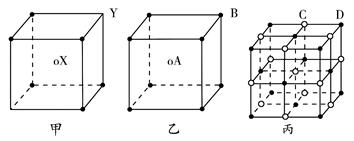A Frenchman, the psychologist Alfred Binet, published the first standardized test of human intelligence in 1905. (46)But it was an American, Lewis Terman, a psychology professor at Stanford, who thought to divide a_test taker’s "mental age," as revealed by that score, by his or her biological age to derive a number that he called "IQ". It would be hard to think of a pop-scientific coinage that has had a greater impact on the way people think about themselves and others.
(47)No country: embraced the IQ more thoroughly than the U.S., where millions of people have their IQ measured annually, many with a direct descendant of Binet’s original test, although not necessarily for the purpose Bin et intended. He developed his test as a way of identifying public school students who needed extra help in learning, and that is still one of its leading uses.
But the broader and more controversial use of IQ testing has its roots in a theory of intelligence—part science, part sociology—that developed in the late 19th century, before Binet’s work and entirely separate from it. (48)Championed first by Charles Darwin’s cousin Francis Galton, it held that intelligence was the most valuable human attribute, and that if people who had a lot of it could be identified and put in leadership positions, all of society would benefit.
Terman believed IQ tests should be used to conduct a great sorting out of the population, so that young people would be assigned on the basis of their scores to particular levels in the school system, which would lead to corresponding socioeconomic destinations in adult life. The beginning of the IQ-testing movement overlapped with the eugenics movement—hugely popular in America and Europe among the "better sort".
In 1958 a British sociologist named Michael Young coined the word "meritocracy" to denote a society that organizes itself according to IQ-test scores. Terman and many other early advocates of IQ testing had in mind the creation of an American meritocracy, though the word didn’t exist then. (49)They believed IQ tests could be the means to create, for the first time ever, a society in which advantage would go to the people who deserved it rather than to those who had been born into it.
In order to believe this, though, you have to believe that merit and a score on an IQ test are the same thing. (50)Long before IQ was invented, America prided itself on beinga country without a class system, in which people of talent and industry would rise and be rewarded. The advent of intelligence tests did not dramatically affect the degree of social mobility in the U.S.—at least not enough for any change to show up in the social-science data.
(50)Long before IQ was invented, America prided itself on beinga country without a class system, in which people of talent and industry would rise and be rewarded.
参考答案:
在IQ测试出现之前的很长一段时间里,美国以自己是没有阶级体系的国家而自豪,在这个国家,有才能的人、勤奋的人会获得地位的提升,得到旧报。
解析:
[原文再现] Long before IQ was invented, America prided itself on being a country without a class system, in which people of talent and industry would rise and be rewarded.
[结构分析] 本句的主干结构为...America prided itself on being a country...,句首long before引导时间状语从句,being a country至句末作宾语。without a class system和in which引导的非限定性定语从句同时修饰a country。
[译点分析]
(1)Long before...invented: 时间状语long before意为“比(某个事件或时期)早得多”,因此该部分可译为“在IQ测试出现之前的很长一段时间里”。
(2)America prided...system: pride在此处为动词,pride oneself on sth/doing sth意为“以(做)某事而自豪;为(做)某事而骄傲”;without结构作后置定语修饰a country,可直接译为前置定语,即“一个没有阶级体系的国家”。
(3)in which...rewarded: 非限定性定语从句,修饰a country,此处可单独译为一个分句,句前需要重复先行词,即译为“在这个国家”;industry此处不是工业的意思,而是“勤奋;勤劳”之意;rise意为“(在社会、职业上等)升至较高的级别、地位或职位”,因此,该部分可译为“在这个国家,有才能的人、勤奋的人会获得地位的提升,得到回报”。

